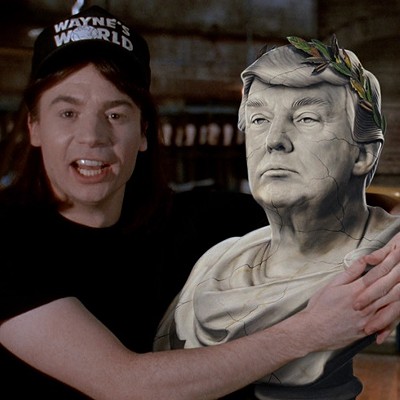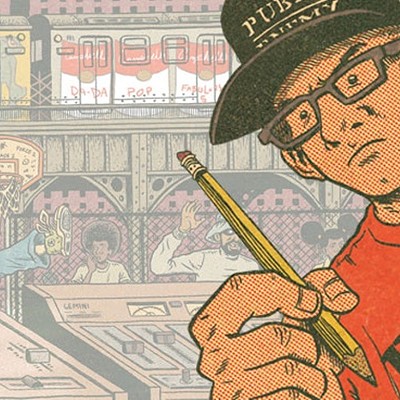There's that old adage: Be careful what you wish for. I imagine the top-shelf Washington, D.C., campaign-consulting firm of Greenberg Carville Shrum thought that having a camera crew on board during its work in the 2002 Bolivian presidential election would capture the firm's on-the-ground brilliance.
But during that contentious election, things didn't go as planned. Rachel Boynton's mordantly funny documentary Our Brand Is Crisis, now on DVD, destroys any notion that GCS's strategy was effective. Beyond that, the film suggests larger cautions about the United States'
persistence in imposing its will and ways on other nations ... particularly countries whose deep and complicated histories it blithely refuses to understand, and people who don't necessary want to be made over in America's image.
GCS was hired to work for Gonzalo "Goni" Sanchez de Lozada, who had been Bolivia's president from 1993 to 1997. A child could see it'd be tough selling a wealthy white businessman who speaks Spanish with an American accent to an angry and desperately poor nation hungry for change. The GCS gang, who come off as smug, well-heeled outsiders playing fast-and-loose with an entire country, are undaunted. They see Bolivia's precarious state as a win-point: "The frame for us is crisis. We must own crisis, it is our brand."
The access that Boynton has is incredible. You'll shake your head wondering which of these marketing geniuses signed off on letting the camera film their focus groups of poor people, the cheap-shot negative campaigns against opponents, and the bumbling Goni. Another adage warns against watching politics and sausage get made, and this back-room glimpse of what soulless claptrap campaigns have become here and now, with our help, overseas, is frequently disheartening.
Ever spinning, even in the aftermath GCS isn't quite ready to call its campaign a disaster, equivocating that "there are conditions that democracies can't deal with." Goni, interviewed again in 2005, sees the cock-up a little more clearly: "Only in the U.S do they think you can change things with information."
In the end, GCS's Jeremy Rosner grudgingly agrees that simply branding a candidate and framing his potential in slogans isn't enough. Certainly it's insufficient in places where the status quo is hurtling over the cliff, and what really matters is clearly defined action. "Democracy must come with benefits," he admits. "People must feel it."













